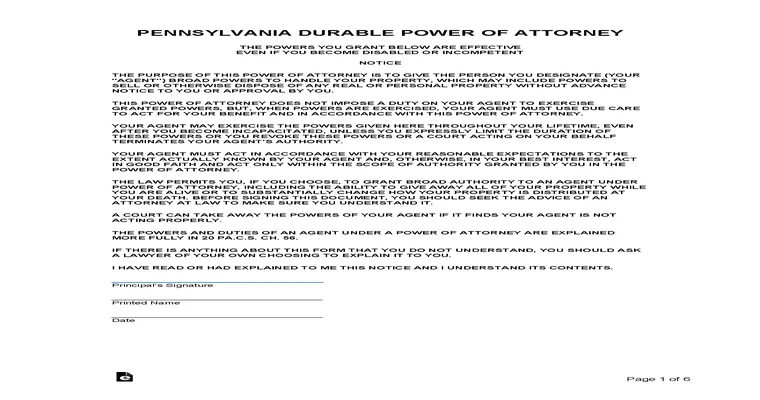When navigating the complexities of a "Power of Attorney (POA)", individuals often find themselves facing a "pending decision". Understanding the implications of a POA and what it means when the decision is pending can be crucial for ensuring that your legal and financial interests are protected. In this article, we will explore the essentials of a Power of Attorney, the significance of the pending decision, and the steps you can take to make informed choices.
A "Power of Attorney" is a legal document that allows an individual, known as the "principal", to designate another person, referred to as the "agent" or "attorney-in-fact", to make decisions on their behalf. This authority can cover various aspects, such as financial matters, healthcare decisions, and legal responsibilities. When a POA is established, it is essential to understand that there may be situations where the decision-making process is not immediate or straightforward — hence the term "pending decision".
The concept of a pending decision in the context of a POA can arise in several scenarios. For instance, if the principal is incapacitated or unable to communicate effectively, the agent may find themselves in a position where they must make urgent decisions without clear guidance. In such cases, the agent may need to consult with medical professionals, legal advisors, or family members to make the best choice for the principal's well-being.
Another situation that can lead to a pending decision is when there are disputes among family members regarding the application of the POA. Conflicting opinions about the principal's best interests can cause delays in decision-making, leaving the agent in a challenging position. It's crucial for agents to document their actions and seek legal advice to ensure they are acting within the scope of their authority and in compliance with the law.
To mitigate the risks associated with a pending decision, it is advisable for individuals to clearly communicate their wishes and preferences when creating a Power of Attorney. This can involve discussions with the designated agent about the principal's values, healthcare preferences, and financial goals. Additionally, having a backup agent can provide an alternative if the primary agent is unavailable or unable to fulfill their duties.
In conclusion, a Power of Attorney is an essential legal tool that empowers individuals to designate someone to act on their behalf. However, the complexities of a pending decision can create challenges that require careful consideration and communication among all parties involved. By proactively addressing potential issues and maintaining open lines of communication, individuals can help ensure that their needs and wishes are upheld, even when decisions are pending. Understanding the nuances of a POA can lead to better outcomes and greater peace of mind for all parties involved.





